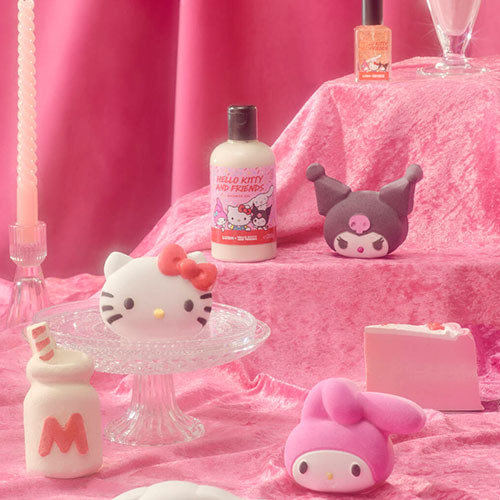Start Licensing’s Ian Downes picks his ‘five of the best’ from a year of Looking Out.
In the spirit of Sports Personality of the Year, I thought I would finish the Year of Looking Out with my review of 2019 highlighting some of the best things I saw this year and a few trends.
There is no doubt it has been a tough year for licensing, and for retail specifically, but there have been a lot of positives to take encouragement from and some promising new trends emerging in the market.
I think Sports Personality of the Year over ran again this year… it always seems to exceed the allocated time, but rest assured my Licensing Lookout review will be considerably shorter and I have confined it to Five of the Best.
1. The Year of the Collab
Fashion brands in particular are turning to well known licensing brands to create ‘collaborations’. These partnerships seem to be designed to create consumer engagement, generate social media momentum and to test design styles. IP owners seem to use these kind of partnerships to add fuel to licensing programmes. It is never clear on what terms such deals are developed. It is unlikely that the usual rules apply deal-wise, but it is certainly a growing part of the licensing market.
One interesting ‘collab’ I spotted this year was a partnership between ‘cartoon band’ Gorillaz and watch brand G Shock. This seemed a good match and with the Gorillaz being a band that tours and releases new music it made sense for them in PR terms. It created a high street presence for them and created a platform for them to engage with consumers outside the conventional music channels.
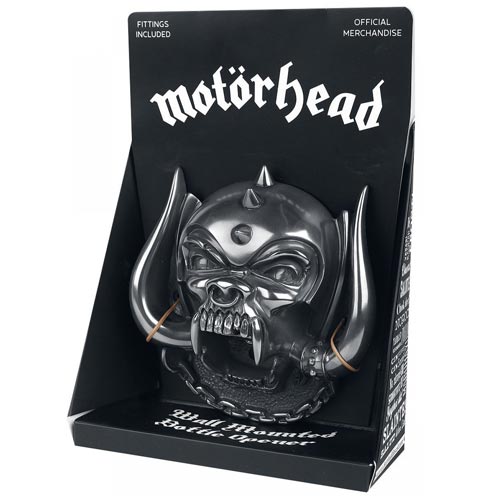
Music seems to be an area of licensing that is in growth and band brands such as The Beatles, The Rolling Stones and Guns ‘n’ Roses seem to be performing really well. I expect to see more of this kind of licensing in 2020.
One product that caught my eye in this category was the Beer Buddies Motörhead bottle opener. A great piece of fan merchandise and also one that ties into the Motörhead Road Crew branded beer that is in the market. This struck me also of a good example of how islands of products can be created to target specific parts of the market in a joined up way.
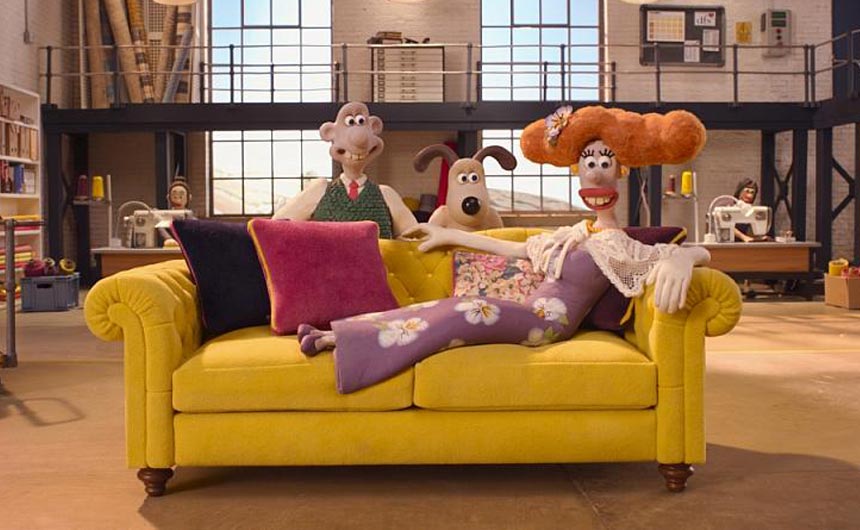
2. TV Times
There have been some great examples of licensed brands featuring in television commercials and advertising campaigns this year. In my own work, Aardman has had a great year in this regard with advertising campaigns featuring Wallace & Gromit with Joules and DFS. As it becomes more difficult for brands to reach consumers through conventional advertising, it means it makes sense that well known IP has a role to play. Well developed campaigns can stand out and give brands a leg up in awareness terms.
Campaigns like these generate a lot of social media coverage and create ‘virtual’ water cooler moments with consumers sharing content. Well chosen properties are also efficient in terms of reaching specific consumer groups which helps with media planning. Advertising budgets can be used in a focused way. To this point DFS’ marketing director, Nick Ashworth, commented: “As brands, we share the similar values and have the same commitment to quality craftmanship. Wallace & Gromit are the perfect fit for our core target segments and allow us to show how we can bring comfort and quality to families this Christmas.”
One campaign that caught my eye this year was The AA‘s use of cult TV series Red Dwarf. It ran a TV campaign based on Red Dwarf which was a recruitment drive for the motoring organisation. The campaign was mentioned in despatches in the business pages of The Times with a headline ‘AA hands keys to Red Dwarf in drive to attract more members’. A real vote of confidence in licensing and the value of creative partnerships like this. Clip licensing is well established, but I expect to see creative companies like Aardman making even more in roads in this category as they can provide well known IP but also produce custom creative work.
3. Magazine and comic brands
Magazine and comic brands have a long history in licensing. A great example is the Beano which has been active in licensing for over 25 years now, while titles like 2000AD and Judge Dredd have a range of licensing partnerships.
Of course, the Marvel and DC Comics’ universe have spawned a whole plethora of films, computer games and licensing.
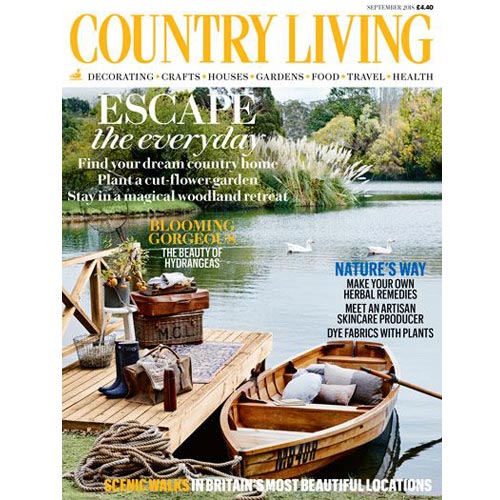
Beyond this there seems to a big move by magazine publishers into licensing. A great example is Country Living. The lifestyle magazine has an interesting portfolio of licensing partnerships and commercial opportunities beyond the page. These include DFS with a range of Country Living sofas, a licensing partnership with Carpetright and a partnership with Coast & Country Hotels. These sit alongside a range of consumer fairs such as the Country Living Country Fair.
I expect to see more magazine publishers tapping into the licensing market to extend their commercial offer and activities. Licensing allows them to generate fresh business and to build a deeper relationship with consumers. Country Living is a great case study and one I am sure other publishers are eyeing up.
4. Heritage
Another growing area of licensing and one that has really caught my eye this year is the work of heritage brands most notably museums. Museums such as the V&A, The Science Museum, Van Gogh Museum and the Natural History Museum are very proactive and have created some noteworthy products.
In some ways this drive into licensing has been forced on them as they seek new sources of income and new ways of ‘selling’ their museums to consumers. But what is encouraging is the quality of products and partnerships that museums are developing.
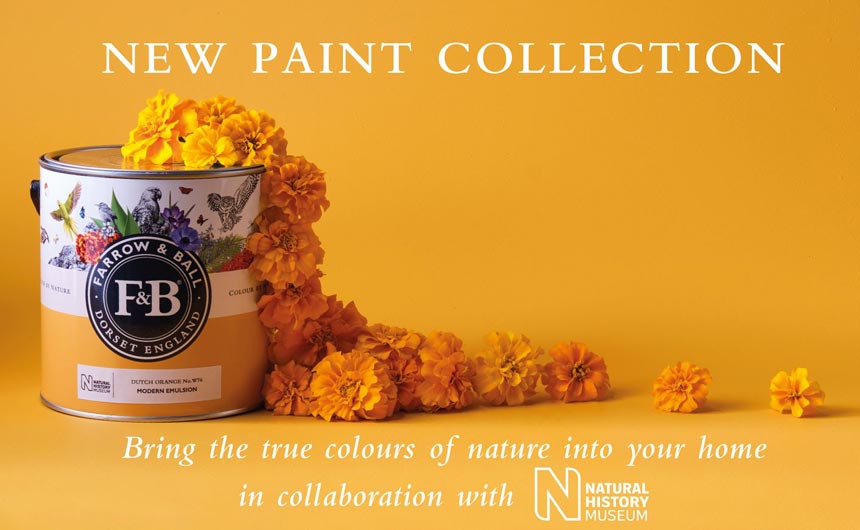
In many ways the V&A has been the trailblazer in the category and has set a very high bar for others to reach. The V&A has a long history of developing high quality products that tap into its archive assets in innovative ways and has built up an international business as well.
The Natural History Museum is becoming more visible at retail and has developed some great partnerships. One that stood out for me was its link with paint company Farrow & Ball. The range celebrates the ‘true colours of nature’. The paint pots in the range feature illustration artwork and floral designs from the museum plus the museum’s logo. The range was promoted in shop windows in locations such as Wimbledon Village and featured in press advertising. A great push for the museum. These kind of things are not just about raising awareness, they also have to raise money.
Landing a partnership with a brand like Farrow & Ball is a great accomplishment and should encourage us all that a well presented licence can appeal beyond the ‘usual suspects’. As an industry we have to make the effort to reach new companies and new sectors. Seeing organisations like museums breaking new ground is good for us all and a great case study to point to.
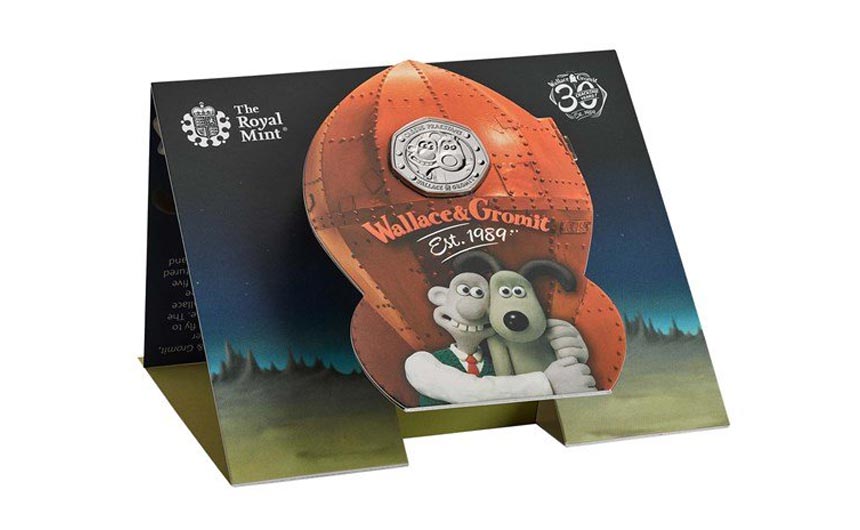
5. A ‘mint’ deal
Finally I have to say 2019 delivered me one of my career highlights. Working with the Royal Mint I was involved in the development and launch of an ‘official’ Royal Mint 50p to mark Wallace & Gromit’s 30th anniversary. As one of my boyhood hobbies was coin collecting it was quite a thrill to see a coin coming to life from an initial sketch to minted coin. This was a great example of how licensing can open doors and the fact that it is a career that is very diverse.
Flicking through my diary it is great reminder that a week or indeed a year in licensing can be one full of variety. This year I had a couple of students work with me as part of their ‘work experience’ and both of them remarked at the end of their time with me how they felt that licensing was a dynamic business that had a lot of variety to it.
It isn’t always easy to enjoy the licensing life when you are trying to find new deals and market conditions are challenging. But seeing the industry through different eyes is a useful reminder that licensing has a lot to offer career wise and of course business wise. One of the work experience students, Saul Segalov, is now working in the industry with agency The Point.1888. The fact that Saul has decided to give licensing a go is a great outcome and something I was really pleased about. The industry needs new blood and fresh thinking – it is encouraging to see younger people like Saul following a career path in licensing.
Best wishes to everyone for Christmas and in 2020. Let’s try to push the value of licensing in a positive way and hopefully I will need to have stretch this review to a Top Ten in 2020 to do justice to all those great deals I see on my Lookout next year.
Ian Downes runs Start Licensing, an independent brand licensing agency. His Twitter handle is @startlicensing – he would welcome your suggestions for what to look out for.



























